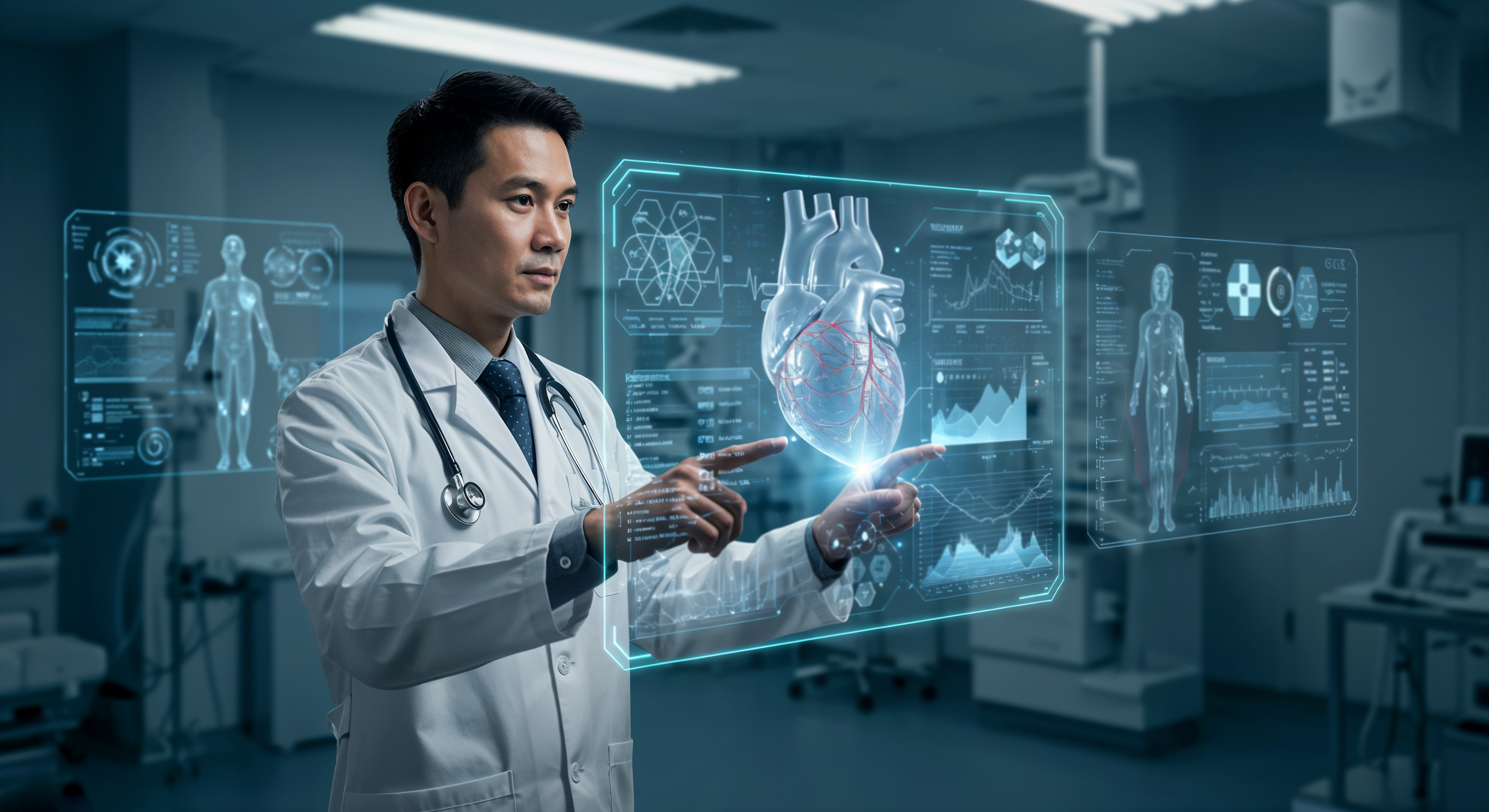There are no items in your cart
Add More
Add More
| Item Details | Price | ||
|---|---|---|---|
July 21, 2025
We're living through a silent revolution. You won't see it in headlines every day, but in the background—behind the scenes of hospitals, labs, and research institutes—AI and Big Data are changing everything.
From faster diagnosis to discovering life-saving drugs, what used to take months or years now takes days or even hours. And guess what? This wave of innovation isn't just for scientists or techies. It impacts you, your health, and the future of your family.
What is Artificial Intelligence and Big Data?
Artificial Intelligence (AI) is the ability of machines to mimic human thinking—like learning, problem-solving, and decision-making. Think of it as a super-fast brain that never sleeps.
Big Data is just what it sounds like—huge volumes of information, often too massive for humans to process without the help of powerful tools.
AI needs data to learn. Big Data gives AI the food it needs. Together, they become a powerhouse—AI makes sense of the data, and the data trains AI to become smarter.
AI can now predict disease outbreaks, find cancer in its earliest stages, or flag a patient before their health crashes. It turns educated guesses into data-backed decisions.
Doctors don't need to wait for lab results or complex analysis. AI can deliver insights in real time, allowing for faster and more accurate responses.
What used to take 10+ years can now be done in a fraction of the time. AI analyzes millions of compounds and simulations, picking out the best candidates.
Scientists don't need to manually sift through spreadsheets anymore. AI can automate analysis, freeing up researchers for creative problem-solving.
AI models help scientists simulate everything from virus mutations to climate change effects—with incredible precision.
With the rise of next-gen sequencing, remote sensing, and digital labs, scientists are generating petabytes of data daily. Big Data helps manage and mine that mountain.
Big Data tools can detect patterns that humans can't—whether it's genes related to rare diseases or unusual signals in space.
AI models are now beating radiologists in identifying lung cancers or diabetic retinopathy. It's not about replacing doctors—it's about helping them become superhuman.
Hospitals use AI to monitor patient vitals and predict complications before they happen. It's like having an early warning system built into your care.
AI uses your genetic makeup, lifestyle, and medical history to tailor treatments just for you—no more one-size-fits-all medicine.
As accurately as leading doctors, DeepMind's AI could identify more than 50 different kinds of eye conditions in a matter of seconds.
AI sped up the process of modeling the virus and testing potential compounds, helping bring vaccines to market faster than ever before.
Mount Sinai Hospital in NYC uses AI to spot heart failure risks. Meanwhile, India's AIIMS uses AI to prioritize emergency cases. Lives saved. Burnout reduced.
By handling the grunt work, AI gives professionals more time for what matters—thinking, innovating, and healing.
Imagine a practice where physicians spend more time with patients and less time on paperwork. That's what AI is helping to build.
With great data comes great responsibility. Who owns your data? Who gets to use it? These are critical questions we must address.
AI may make biassed judgements if it is trained on biassed data. This isn't just a tech issue—it's a life-or-death one in healthcare.
AI can analyze, but it can't empathize. The role of human compassion, judgment, and ethics can't be replaced.
Plenty of platforms (like Coursera, edX, Medviber Academy) offer non-coding AI courses for healthcare and science professionals.
Whether it's your next hospital visit, vaccine, or air quality alert, AI + Big Data will play a role.
Understanding how these tools work can help you vote smarter, question wisely, and trust technology without being blind to its risks.
Fully automated diagnostics, digital patient twins, robotic surgery—it's not sci-fi. It's happening right now.
Digital twins will simulate your body for safe drug testing. Synthetic biology will let us redesign life itself—with AI steering the ship.
AI and Big Data aren't some futuristic fantasy—they're the new normal. From the microscope to the ER, they're quietly transforming science and healthcare. If you're a student, a professional, or just someone who wants to stay informed—now's the time to pay attention.
It's not about man vs. machine. It's about man + machine—working together to solve the world's biggest challenges.
1. What's the difference between AI and Big Data?
AI is the brain. Big Data is the fuel. AI needs vast data to learn, and Big Data needs AI to make sense of it.
2. Is AI going to replace doctors or scientists?
No, but it will augment their abilities. Think Iron Man's suit, not a robot takeover.
3. How can students in non-tech fields benefit?
By learning how AI tools work in their domain—be it biology, public health, or research—they can make smarter, faster decisions.
4. Are AI and Big Data reliable?
They're powerful—but only as good as the data and design. Human oversight is essential to keep them fair and accurate.
5. How can I learn more without a technical background?
Start with beginner-friendly platforms like Coursera, YouTube, or specialized academies like Medviber. No code required—just curiosity!